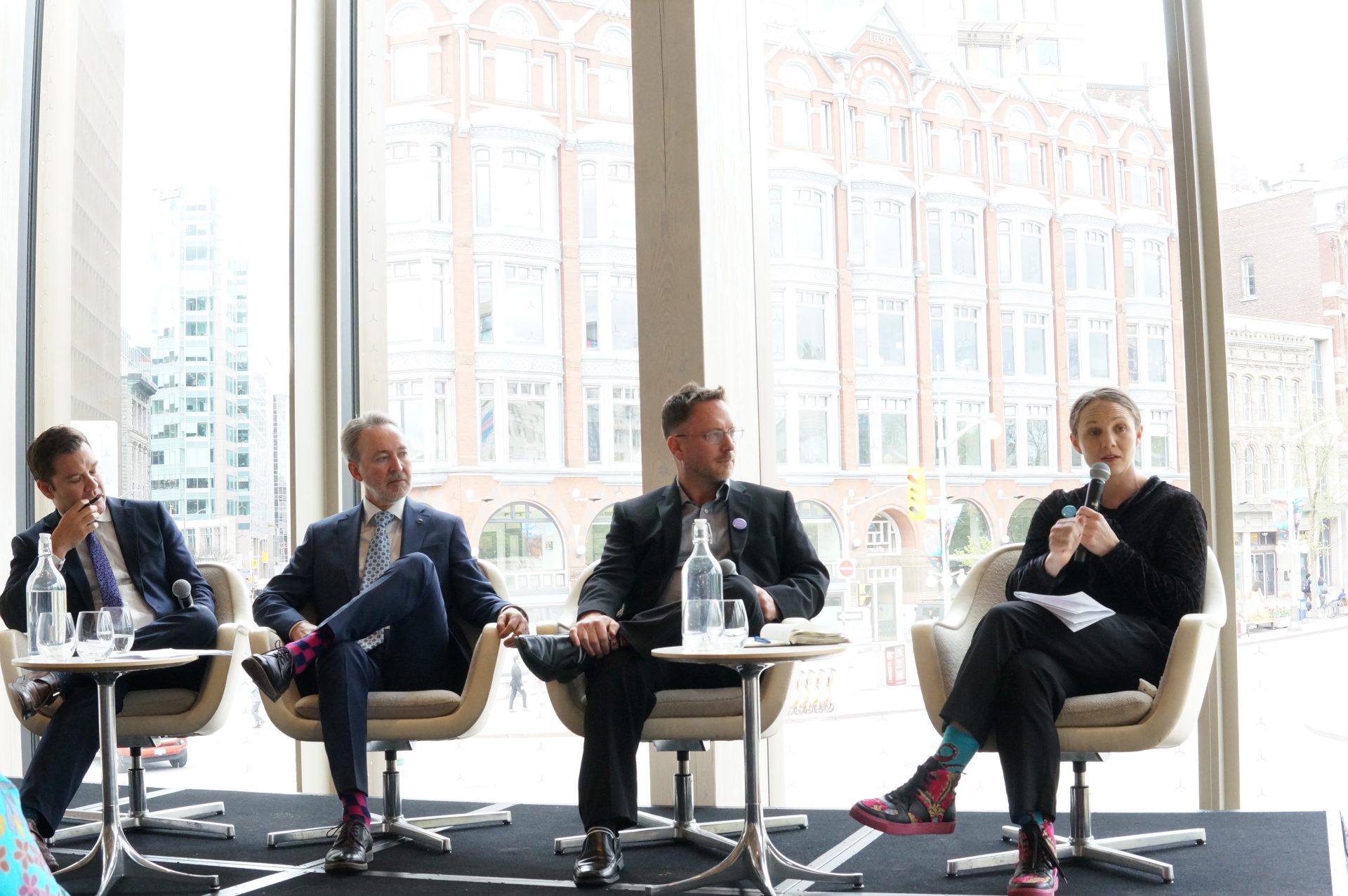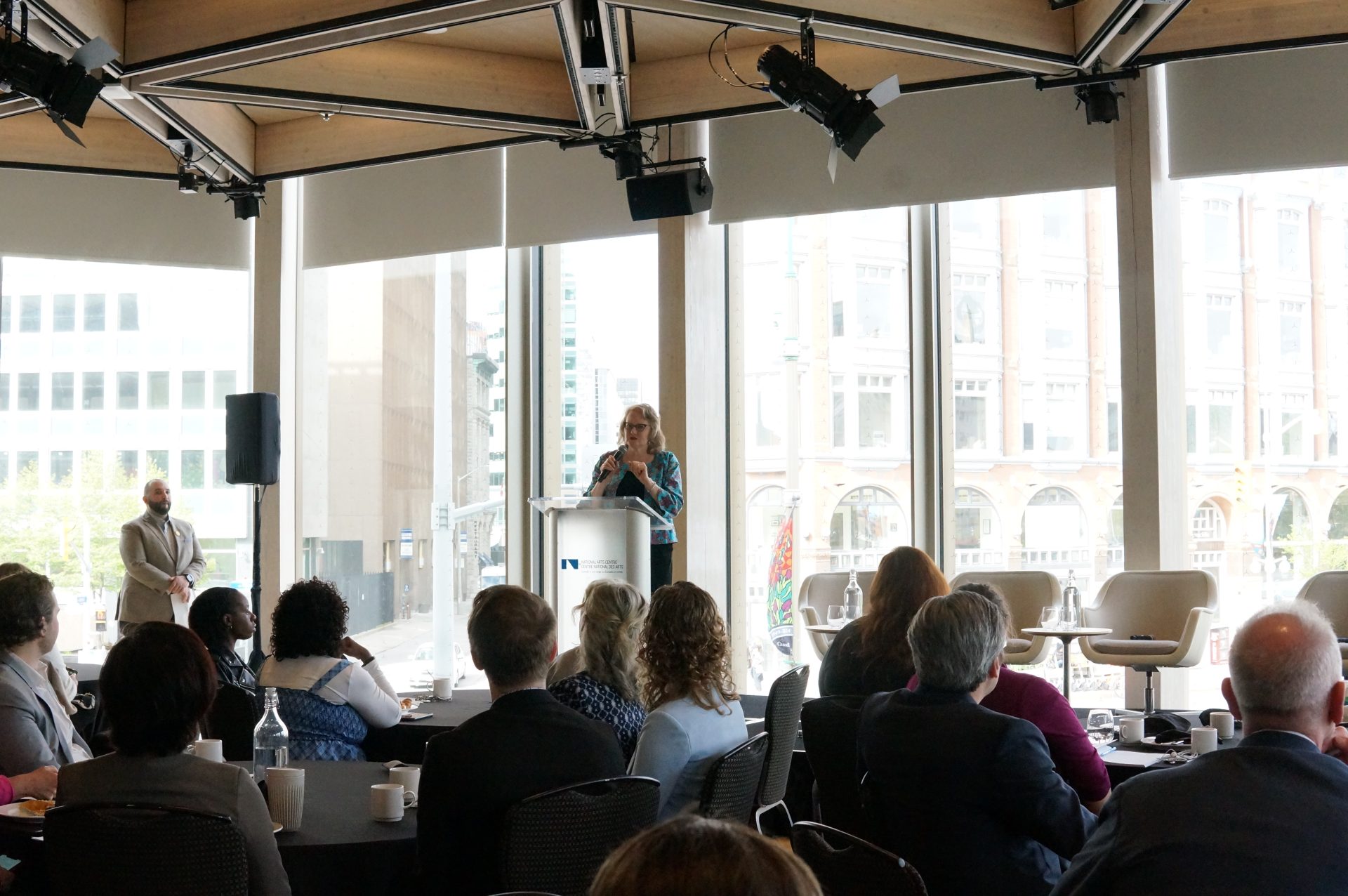Menu
Close

From common ground to real change: Reflections on a landmark mental health policy summit
Jun 20, 2024
By Margaret Eaton
For a few hours at Ottawa’s National Arts Centre last month, a room full of people rallied around their common concern about the mental health of Canadians. Our professional backgrounds were varied, our personal experiences unique to each of us, and any political affiliations were secondary to the shared focus that brought us together.
It was also compassion — the theme of CMHA’s 73rd Mental Health Week, during which this event was held — that helped bring this mental health summit into being. But it wasn’t the only driving force. Essential, too, was the political courage displayed by its organizing parliamentarians.
This summit was made possible because of leadership from Member of Parliament Matt Jeneroux (Conservative Party of Canada), alongside his colleagues Gord Johns (NDP), Majid Jowhari (Liberal Party of Canada), and Julie Vignola (Bloc Québécois), to try something new. United around a shared recognition that we can and must do better when it comes to mental health in Canada, these parliamentarians endeavoured to create respectful, constructive, and sometimes challenging conversations about possible paths forward.
Beginning with a discussion on youth mental health and moving into panels focused on the experiences of men and gender-diverse people, leaders from across the mental health sector spoke to on-the-ground challenges, and changes required to meet the mental health needs of Canadians in their communities. Systemic change is needed not only to bolster our collective mental well-being, but to redirect people in crisis away from hospitals and police toward community-oriented care. Shining examples were also highlighted of the community care that is being delivered today, in different pockets of the country.
Through family, peer support, and school programming, organizations represented at the summit are helping people access support in the places and from the people they’re closest to. They’re offering spaces providing the everyday experiences, from recreation to safe housing, that we all need to flourish. They’re working to ensure that frontline workers, dedicated to helping others, can help themselves prevent burnout and stay well.
While the summit made manifest that community-based organizations are at the leading edge of delivering highly impactful mental health and substance-use health care, it also underscored that they don’t have the support they require to meet the needs of the communities they serve — and that the cost of this is immeasurable. Individuals are suffering, and so too are the loved ones, frontline workers, and institutions working tirelessly to serve them.
Envisioned as a quilt extending to all Canadians, we need more planning, coordination, and resourcing, if we want a mental health care system befitting of a truly compassionate country. We must ensure that it’s free from holes and its pieces are seamlessly connected, so that no one falls through the cracks.
If we have any hope of completing this quilt, there must be further political courage. This means cross-party collaboration, and ultimately, legislative and policy action. It’s a prescription we at the Canadian Mental Health Association often talk about.
This work begins with addressing the exclusion of mental health and substance-use health services — particularly those delivered outside of hospitals and doctors’ offices by community organizations — from our universal public health care system. The mental health care system of the future runs on permanent, predictable federal funding; provincial and territorial accountability for spending, with shared accountability measures; and sufficient flexibility for communities to address local needs.
In the absence of this, the quilt remains frayed, letting people fall through without the help they need. We can and must do better.
As we move forward from the summit, from our annual Mental Health Week, and the opportunities they both presented for compassion, connection, and learning, it’s time to build on the momentum that was created. Let’s continue to find common ground, work together, and pursue real change to the delivery of mental health care in Canada, for our collective good.



